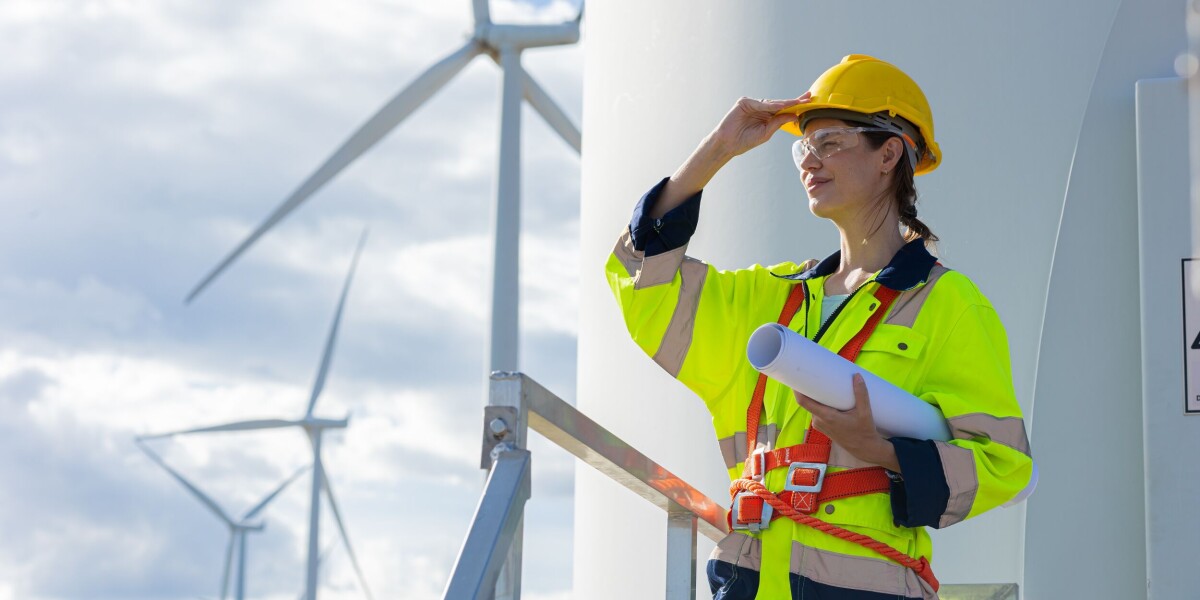
What’s new in France in 2025 for environment and ecology
- Select a language for the TTS:
- UK English Female
- UK English Male
- US English Female
- US English Male
- Australian Female
- Australian Male
- Language selected: (auto detect) - EN
Play all audios:
The number of offshore wind farms in France is growing: sites with start dates this year include those at Courseulles-sur-Mer, Normandy and Yeu-Noirmoutier, Pays-de-la-Loire.
Despite such projects, most of France’s energy is still produced by nuclear power.
An environmental law from 10 years ago stated that the amount of energy produced by nuclear power in France should be reduced to 50% by 2025 through more use of other green alternatives –
but this was later delayed until 2035 before being abandoned following the Covid crisis, war in Ukraine and rising electricity bills.
The current goal is more modern nuclear power stations, rather than fewer. According to the latest available data, around 65% of French electricity was produced by nuclear power in 2023.
Read more: MAP: Offshore sites identified for new wind farms in France
From January 1, all properties classed with the lowest, G, rating for environmental efficiency will be banned from being rented out – ie. from this date, rental properties must be classed F
at the lowest.
Current tenants of G-rated properties will not be evicted, but the property cannot be relisted again for a new tenant until its energy rating increases.
This will be followed by a ban on F in 2028 and E in 2034, with the aim of encouraging owners to renovate their properties.
New gas boilers will no longer be available at the reduced 5.5% VAT rate, but are liable to be subject to full 20% VAT, it is planned. This measure, yet to be confirmed, aims at encouraging
households to opt for more eco-friendly installations.
A decree increased the VAT on certain boilers to 10% at the beginning of January, but politicians hope to further increase the VAT to 20% in a new 2025 budget.
People in Pays de la Loire, Brittany, Normandy and Hauts-de-France will be able to return glass bottles and jars to bottle banks in supermarkets and receive up to 30 cents for each item
under a scheme set to launch in March in participating supermarkets.
Read more: French supermarkets to begin ‘automatic refunds’: how will this work?
From this year, all new washing machines must by law be equipped with a filter aimed at catching plastic micro-fibres. These tiny fibres often end up in the sea and represent a significant
part of plastic pollution.
NetZero, a French firm that turns agricultural waste into biochar, is among 20 firms in the running for a €50million XPrize Carbon Removal funded by Elon Musk.
It is due to be awarded this year to a firm that can show its ideas work on a large scale.
Read more: French eco-firm has chance to win €50 million prize from Elon Musk
From this year, recycling bins should be widespread in public places, such as streets, parks, and squares so people can easily recycle their waste, including when they are away from home.
There is no national website for this, but your mairie will likely have information: try searching with terms such as point tri, or points d’apport volontaire.
Several new sectors are, from this year, also affected by a law aiming to ensure makers and distributors of certain articles liable to end up as landfill waste take more responsibility for
this, known as the polluter pays principle.
Payments from the sectors go towards recycling/collection schemes. They will now include all industrial and commercial wrapping/packaging, as well as fishing material.
Read more: What are the recycling rules in France? Has something changed?
From January 1, 2025, polystyrene was set to be only used in packaging for yoghurt and dessert pots or meat and fish trays if systems had been put in place to recycle it. However, this
obligation has been put off after a failure of the food industry to establish sufficient recycling plant capacity.
Bordeaux city council is inviting owners of old wood-burning heaters to replace them with eco-friendly models, labelled flamme verte, to reduce air pollution.
Its Fonds air bois is mainly aimed at lower-income households, with up to €4,000 available.